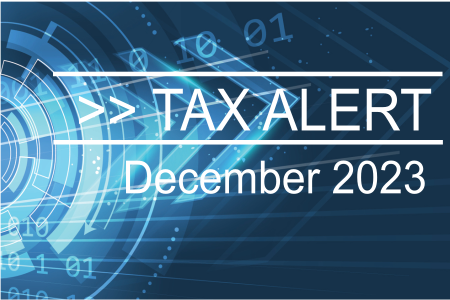Ensuring you’ve structured your finances tax-effectively is always a concern, but with new tax rules for super on the horizon, many people with large balances are considering alternative vehicles to save for retirement.

Unsurprisingly, this has sparked a renewed interest in an old favourite – trusts.
Trusts have always been popular in Australia, with the government’s Tax Avoidance Taskforce (Trusts) estimating more than one million were in place in 2022.
Separating ownership using a trust
The popularity of trusts for business, investment and estate planning purposes is due to both their flexibility and inherent benefits, particularly when it comes to managing your tax affairs.
At their heart, trusts are simply a formal relationship where a legal entity holds property or assets on behalf of another legal entity.
This separation means the trustee legally owns the assets, but the beneficiaries of the trust (such as family members) receive the income flowing from the assets.
A common example of a trust structure is a self managed super fund (SMSF), where the fund trustee is the legal owner of the fund’s assets, and the members receive investment returns earned on assets held within the SMSF trust.
Which trust is best?
There are many different types of trusts, with the appropriate structure depending on the financial goals you’re trying to achieve.
For small businesses and families, the most common trust is a discretionary (or family) trust. These vehicles are very flexible and can be used with immediate and extended family members, family companies or even charities.
In a discretionary trust, the trustee has absolute discretion on how both the income and capital of the trust are distributed to various beneficiaries.
This gives the trustee a great deal of flexibility when it comes time to allocate income to family members paying different marginal tax rates.
Advantages of a trust structure
Discretionary trusts offer tax, asset protection, estate planning and property holding benefits.
They can also assist with the accumulation of assets for younger generations within your family and provide opportunities for the discounting of capital gains.
For small businesses and farming operations, a discretionary trust can be used to provide valuable asset protection. If your business goes bankrupt or a beneficiary is divorced, creditors will be unable to access assets or property held within the trust as it is the legal owner of the assets.
Building wealth outside super
With new tax rules for super fund balances over $3 million being introduced, trusts also provide a useful tool to consider for continued wealth accumulation.
Unlike super funds, trusts don’t have annual contribution limits, restrictions on where you can invest or borrowing limits. Money can be added and removed from the trust as necessary, providing significant financial flexibility.
Discretionary trusts can also be used with vulnerable beneficiaries who may make unwise spending decisions. The trustee can decide to provide a spendthrift child or a family member with a gambling addiction regular income, but not large capital sums.
Holding ownership of assets within a trust is useful for estate management, as the assets will not be part of a deceased estate, avoiding the possibility of a Will being challenged.
Trusts aren’t always the solution
Although trust structures provide many benefits, there are also tax issues that need to be considered. For example, any trust income not distributed to beneficiaries is taxed at the top marginal rate.
Distributions to minor children are taxed at higher rates and a trust is unable to allocate tax losses to beneficiaries, so they must remain within the trust and be carried forward.
Trusts can be expensive to set up, administer and dissolve when they are no longer needed and the trustee’s actions are restricted by the terms of the trust deed.
If a family dispute arises, running a trust can become difficult and making changes once it is established isn’t easy.
More certainty about trust tax and law
Although the ATO has been keen to crack down on trust-based tax avoidance or evasion schemes in recent years, the regulator recognises the majority of trust arrangements are used for genuine business and family reasons.
Recent ATO rulings (such as its compliance guidance on trust payments) have caused concern in relation to some common trust tax planning strategies related to the section 100A exemption covering distributions to companies and family members.
In June 2023, however, the Full Federal Court delivered a landmark ruling in a case related to these activities. The decision has provided much greater certainty on the tax position of trust distributions and will ensure these structures remain valuable tools when managing your financial affairs.
Although the BBlood case related to a very specific complex trust arrangement, the decision has highlighted the importance of getting professional tax and legal advice when making trust transactions and incorporating trusts into other tax structures.
If you would like to find out more about trusts and whether one is appropriate for your business or family, call us today.
When a trust ends
An often overlooked aspect of a trust is what happens when it’s no longer needed.
In most states, trusts have a maximum shelf-life of 80 years. Most trust deeds, however, usually specify a date or an event (such as the youngest beneficiary attaining a certain age), on which the interests in the trust must vest.
On the vesting date, the trustee formally winds up and dissolves the trust by appointing all the trust property to the beneficiaries in accordance with the trust deed.
A trust can be terminated or wound up early if the trustee and beneficiaries want to bring the relationship to an end and the trust deed provides the necessary power to amend the vesting date provisions.
Winding up a trust may have significant income tax implications or trigger a Capital Gains Tax event, so it’s important to talk to your accountant prior to terminating an existing trust.
Did you enjoy this article?
Click below to share it
More News Articles

What the 2025 Federal Budget Means for you
Treasurer Jim Chalmers’ fourth federal budget
was just announced

Retirement Planning: It’s Not all About the Money
Retirement is often a massive life change for the majority of people who experience it

FBT – How Fringe Benefits Tax Works
FBT is separate to income tax. It’s calculated on the taxable value of the fringe benefit

Tax Alert December 2023
The ATO is getting back to business with it’s lenient approach during the pandemic over, it’s focus now is returning to traditional debt collection

How a Super Recontribution Strategy Could Improve Your Tax Position
The main reason for implementing a recontribution strategy is to reduce the taxable component of your super and increase the tax-free component

Rental investor? How to Get Your Tax Return Right
Extra care is needed when lodging returns with rentals
Connect Through our Socials
While you may have come to us from a variety of sources, the time has never been better to join us.
Connect through out socials to keep up to date with our latest news and get some tips.




